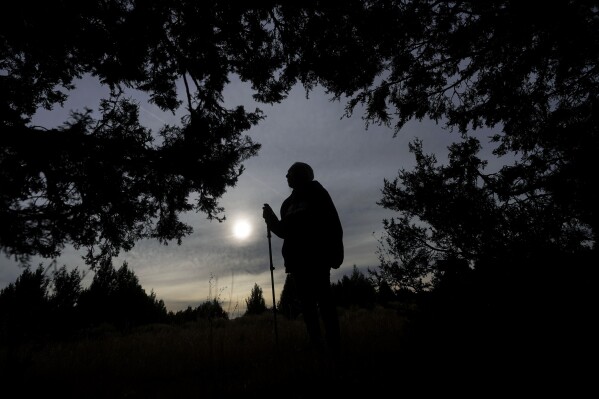Nevada high court ruling upholds state authority to make key groundwater decisions
LAS VEGAS (AP) — Nevada’s top water official has authority to decide how underground supplies are allocated, the state Supreme Court said this week, in a ruling that could kill a long-stalled proposal to build a sprawling master-planned city north of Las Vegas and boost chances of survival for an endangered species of fish native only to natural springs in the area.
The unanimous ruling Thursday by the state high court followed oral arguments in August about whether the state engineer could protect the Muddy River drainage basin and habitat of the endangered Moapa dace by considering several aquifers beneath a vast area including parts of Clark and Lincoln counties as a single underground basin.
“We hold that the State Engineer has authority to conjunctively manage surface waters and groundwater and to jointly administer multiple basins,” the ruling said.
The legal language established a precedent seen as crucial to regulating pumping rights and water use in the nation’s driest state amid climate change and ongoing drought in the U.S. Southwest.



The state had appealed the case to the seven-member court after a judge in Las Vegas sided with developers planning an immense master-planned community called Coyote Springs. The lower court judge rejected a decision by then-State Engineer Tim Wilson to combine six water basins and part of another into just one, all subject to the same regulations.
Wilson cited groundwater tests that over two years produced rapid widespread depletion of underground stores in an area supplying the Muddy River in an order in 2020 that limited the amount of water that could be drawn from the aquifer.
The Muddy River basin feeds the Virgin River and an arm of Lake Mead, the Colorado River reservoir behind Hoover Dam, which serves as a crucial source of water and hydropower for a seven-state region including 40 million residents and vast agricultural lands.
The basin also feeds warm springs that are the only home to the Moapa dace, a finger-length fish that environmentalists including the Center for Biological Diversity have been fighting for decades to protect.
“The state engineer made the right call in ordering that groundwater and surface water be managed together for the benefit of the public interest, including wildlife,” Patrick Donnelly, regional director for the organization, said in a statement hailing the state Supreme Court decision. “The Moapa dace is protected by the Endangered Species Act, and that means the state can’t take actions that would drive the species toward extinction.”
Meanwhile, water supply questions have stalled Coyote Springs developers’ plans to build from scratch what would become one of Nevada’s largest cities — once envisioned at more than 150,000 homes and businesses covering an area almost three times the size of Manhattan.
Coyote Springs’ original investors included Harvey Whittemore, a renowned Nevada lobbyist and developer who later was imprisoned 21 months for funneling illegal campaign contributions to then-Sen. Harry Reid. The Democratic party leader said he was unaware of the scheme and was not accused of wrongdoing. He died in 2021.
The site about 60 miles (96 kilometers) from Las Vegas today has a monument marking an entrance and a golf course that opened in 2008, but no homes.
The Supreme Court ruling did not end the legal fight. It sent the case it back to Clark County District Court to decide whether the state engineer gave proper notice before deciding what the justices termed “the absence of a conflict to Muddy River rights.”
Disclaimer: The copyright of this article belongs to the original author. Reposting this article is solely for the purpose of information dissemination and does not constitute any investment advice. If there is any infringement, please contact us immediately. We will make corrections or deletions as necessary. Thank you.





